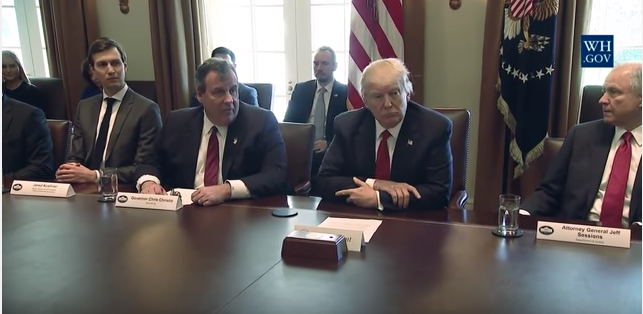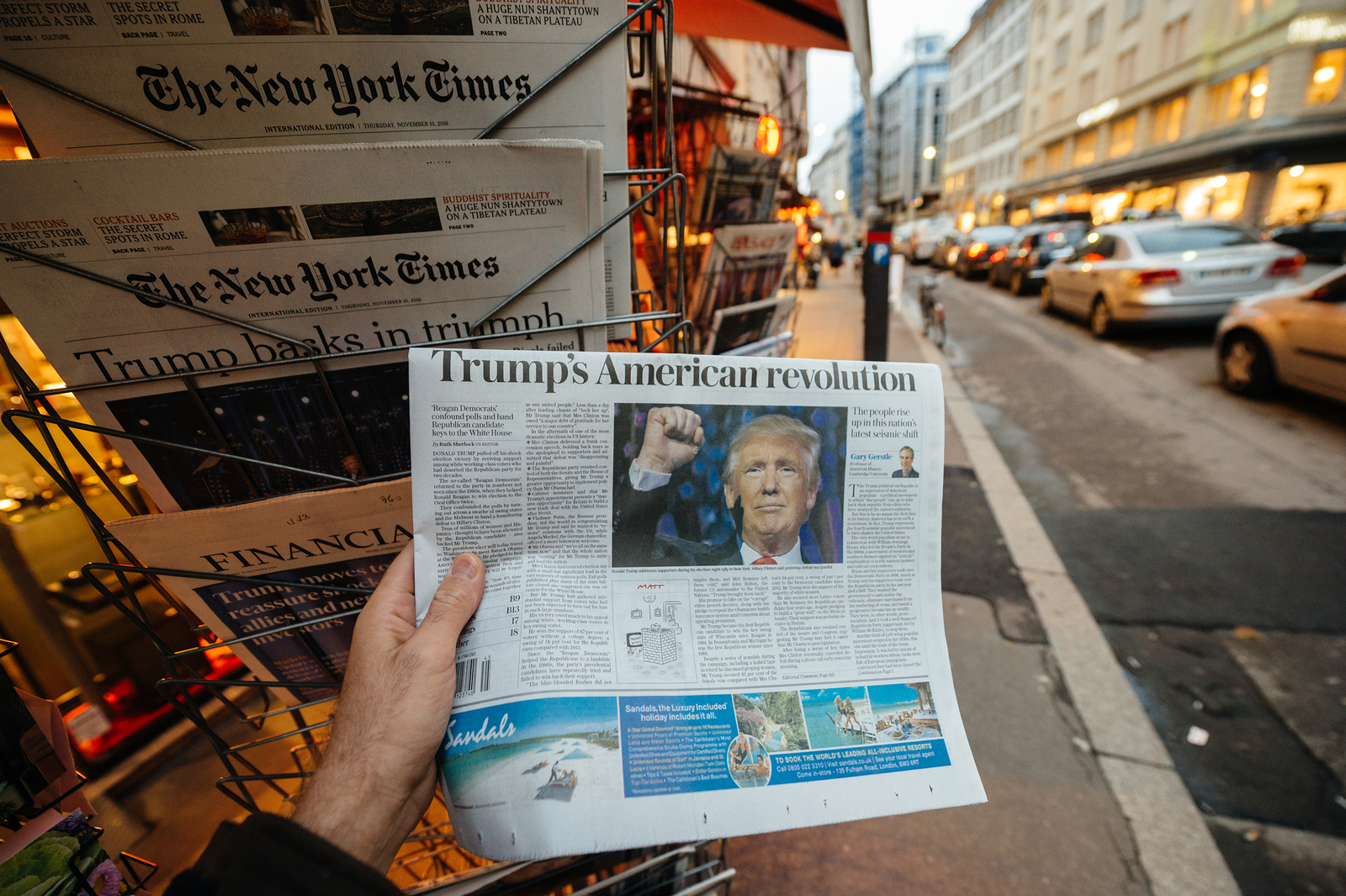What Is New Hampshire’s Role in Trump’s New Presidential Opioid Commission?

There’s a new presidential opioid commission in town, but drug policy experts remain skeptical about its mission and effectiveness. It also appears that New Hampshire does not have a seat at the table, for now at least.
The President’s Commission on Combating Drug Addiction and the Opioid Crisis was announced Wednesday when President Donald Trump signed the executive order laying out its blueprint. It will be chaired by New Jersey Gov. Chris Christie, who has made the opioid crisis a priority as governor, and will study appropriate steps for lawmakers and federal officials to take to combat the epidemic.
“This is an epidemic that knows no boundaries and shows no mercy, and we will show great compassion and resolve as we work together on this important issue,” Trump said.
The panel’s mission would be to identify federal funding streams that could be directed to address the crisis, determine the best practices for prevention and recovery, evaluate federal programs and the U.S. health system to identify regulatory barriers or ineffective initiatives like prescribing practices, and consider changes to the criminal justice system.
More than 52,000 Americans died from a drug overdose in 2015 — up from 47,000 in the previous year — according to the U.S. Centers for Disease Control, and nearly two-thirds of those deaths involved an opioid.
The commission would make interim recommendations within 90 days of its establishment along with a final report in October. The agencies involved would be expected to take actions implementing those policies.
The commission would be composed of Attorney General Jeff Sessions, Health and Human Services (HHS) Secretary Tom Price, Veterans Affairs Secretary David Shulkin, and Defense Secretary James Mattis. Another five members from state governments, law enforcement, and other groups would finish it. Massachusetts Republican Gov. Charlie Baker and North Carolina Democratic Gov. Roy Cooper are reportedly set to sit on the panel.
When the commission was announced, a spokesman for New Hampshire Republican Gov. Chris Sununu told NH1 News that he “doesn’t have a formal role with the commission.”
If that stands, it would be an interesting position from the White House. The Granite State has the second-highest overdose deaths in the country. While Massachusetts has also been devastated by the opioid crisis, Baker did not support Trump in the 2016 presidential election and Governor John Sununu never once wavered from his support for Trump.
There was also no one from New Hampshire taking part in the listening session at the White House when they announced the commission. None of New Hampshire’s Democratic congressional delegation took part in the session.
That’s worth noting because Trump and Christie as presidential candidates often discussed the opioid crisis during their campaign visits in New Hampshire.
“A wall will not only keep out dangerous cartels and criminals, but it will also keep out the drugs and heroin poisoning our youth,” Trump said in a stop in the Granite State in October.
However, drug policy experts are concerned that Trump is focusing on just the criminal justice side of the crisis, and not enough on treatment and prevention.
“We don’t yet fully know what the Trump policy towards the opioid crisis will be,” said Leo Beletsky,a law professor at Northeastern University who specializes in health and drug policy, in an interview with NH Journal.
“During the campaign, he made statements supporting treatment access and focusing on interdiction at the US-Mexico border,” he added. ‘Since the election, we have heard much about the ‘Wall,’ other interdiction efforts, and criminal justice tools to combat the crisis, but not so much about the treatment issue.”
Other advocates are frustrated with actions the Trump administration has already taken that could actually worsen the crisis.
The Office for National Drug Control Policy (ONDCP) would support the commission, and the office’s director — known as the “drug czar” — would represent the president. Yet, the ONDCP post is still unfilled, despite reports that former U.S. Rep. Frank Guinta of New Hampshire was being considered for the job.
A new spending plan reported last week would cut the Substance Abuse and Mental Health Services Administration’s mental health block grant by $100 million in 2017. Trump’s proposed 2018 budget for HHS would cut the agency’s funding by nearly 20 percent.
Beletsky was also concerned about Sessions being involved in the commission due his skepticism about treatment and favoring a punishment system to handle the opioid crisis.
“Further, Jeff Sessions is a long-time adherent to the idea that we can arrest and punish our way out of substance misuse in this country — an idea that has been a demonstrable failure and one that has frankly brought us to where we are today,” he said.
Several experts also question the value of the commission and how its efforts could be duplicative of actions and groups already in existence.
In November, Surgeon General Vivek Murthy released the office’s first-ever report on opioids and addiction, which included tools and recommendations to combat substance abuse.
There’s also the Bipartisan Task Force for Combating the Heroin Epidemic, which was created in 2015 by Guinta and New Hampshire’s other delegate, Democrat U.S. Rep. Annie Kuster. It’s mission has transformed as the crisis evolved from just heroin to include opioids and fentanyl, but it remains a legislative approach to handling the epidemic.
“The Presidential Commission…appears to be weighed heavily towards a more partisan and more criminal justice-focused approach, in a tone set by the AG,” Beletsky said. “As far as I know, there is not one public health expert on the Commission, which is as clear signal as any that Obama Administration’s mantras of ‘public health approach’ and ‘we can’t arrest our way out of this problem’ will not find much support in this group.”
Kuster appeared supportive of Trump’s efforts to tackle the opioid crisis and create a presidential commission, but cautioned against repealing parts of the Affordable Care Act that provide support for individuals seeking substance abuse treatment.
“We also know that there is not enough capacity for those seeking treatment, and I was pleased to see that part of the Commission’s mission will be to assess the availability of substance use treatment and recovery services,” she said in a statement. “I look forward to working with the Commission and discussing how the Bipartisan Heroin Task Force can be a productive partner in the House of Representatives to advance policies to address the opioid addiction crisis.”
Sign up for NH Journal’s must-read morning political newsletter.



